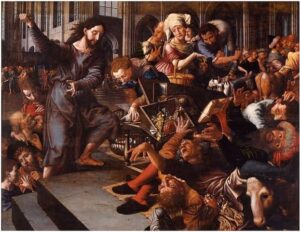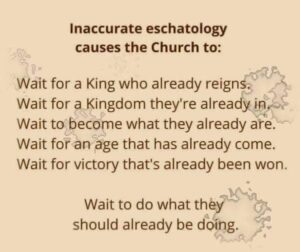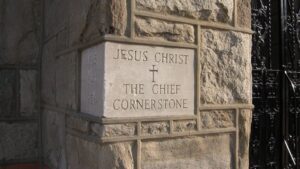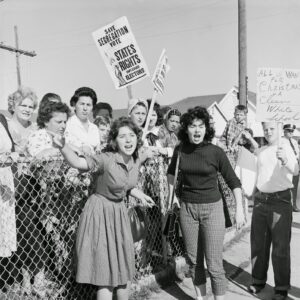 One of the things I try to do when I read the stories of Jesus in the Gospels, when he uses an odd or striking metaphor like “I will make you fishers of people”[1] or, as it is put in this Gospel, “from now on you will be catching people,”[2] is to figure out if he’s referring back to Law or the Prophets, and whether it might be the lectionary’s choice for a first lesson. Sometimes that helps me figure out whether there is a thematic link between the lessons and, if so, what it’s supposed tell us, but unfortunately that’s not the case today. Jesus doesn’t seem to have had Isaiah in mind when he summoned Peter and his business partners.
One of the things I try to do when I read the stories of Jesus in the Gospels, when he uses an odd or striking metaphor like “I will make you fishers of people”[1] or, as it is put in this Gospel, “from now on you will be catching people,”[2] is to figure out if he’s referring back to Law or the Prophets, and whether it might be the lectionary’s choice for a first lesson. Sometimes that helps me figure out whether there is a thematic link between the lessons and, if so, what it’s supposed tell us, but unfortunately that’s not the case today. Jesus doesn’t seem to have had Isaiah in mind when he summoned Peter and his business partners.
So for the past week or so, I’ve been pondering what might be the reason for putting the Isaiah reading –– which, although it comes in the sixth chapter, is the story of Isaiah’s initial call to be a prophet –– together with Luke’s version of Jesus recruiting Simon Peter and the sons of Zebedee, James and John, to be disciples. The simple answer, of course, is that they are both stories of calls to ministry, but they are so different!

 When I was about 8 or 9 years of age, my grandparents gave me an illustrated bible with several glossy, color illustrations of various stories. They weren’t great art, but they were clear and very expressive. My favorite amongst them was the illustration of today’s gospel lesson.
When I was about 8 or 9 years of age, my grandparents gave me an illustrated bible with several glossy, color illustrations of various stories. They weren’t great art, but they were clear and very expressive. My favorite amongst them was the illustration of today’s gospel lesson. On April 12, a little more than seven months ago, I was privileged to officiate and preach at a service of Choral Evensong at Trinity Episcopal Cathedral in Cleveland. Following the service, on our way home to Medina, my wife Evelyn and I stopped at a Lebanese restaurant in Middleburg Heights for a late dinner in celebration of our 43rd wedding anniversary, which that day was. After a lovely meal of hummus, baba ganoush, spicy beef kafta, and chicken shwarma, we went home to bed. A few hours later, around 2 a.m., I woke up with a horrendous case of heartburn. I took some antacid and went back to sleep sitting up in my favorite armchair. At 7 a.m. the next morning, I woke up knowing that I hadn’t had indigestion after all; I was having a heart attack.
On April 12, a little more than seven months ago, I was privileged to officiate and preach at a service of Choral Evensong at Trinity Episcopal Cathedral in Cleveland. Following the service, on our way home to Medina, my wife Evelyn and I stopped at a Lebanese restaurant in Middleburg Heights for a late dinner in celebration of our 43rd wedding anniversary, which that day was. After a lovely meal of hummus, baba ganoush, spicy beef kafta, and chicken shwarma, we went home to bed. A few hours later, around 2 a.m., I woke up with a horrendous case of heartburn. I took some antacid and went back to sleep sitting up in my favorite armchair. At 7 a.m. the next morning, I woke up knowing that I hadn’t had indigestion after all; I was having a heart attack. This is the second of three Sundays during which our lessons from the Gospel according to Matthew tell the story of an encounter between Jesus and the temple authorities. Jesus has come into Jerusalem, entered the Temple and had a somewhat violent confrontation with “the money changers and … those who sold doves,”
This is the second of three Sundays during which our lessons from the Gospel according to Matthew tell the story of an encounter between Jesus and the temple authorities. Jesus has come into Jerusalem, entered the Temple and had a somewhat violent confrontation with “the money changers and … those who sold doves,” Heavenly Father,
Heavenly Father, A clergy colleague suggested recently that this Sunday’s epistle reading
A clergy colleague suggested recently that this Sunday’s epistle reading “As Jesus was walking along, he saw a man called Matthew sitting at the tax booth; and he said to him, ‘Follow me.’ And he got up and followed him.”
“As Jesus was walking along, he saw a man called Matthew sitting at the tax booth; and he said to him, ‘Follow me.’ And he got up and followed him.” Anthelme Brillat-Savarin , an 18th century French politician once said, “Tell me what kind of food you eat, and I will tell you what you what kind of man are.”
Anthelme Brillat-Savarin , an 18th century French politician once said, “Tell me what kind of food you eat, and I will tell you what you what kind of man are.” In today’s Gospel lesson we heard, as we always hear on the Second Sunday of Easter Season, the story of “doubting Thomas.” What is striking about the Thomas’s demand … “unless I see” … is that our Lord accepts and encourages it … “Reach out your hand.”
In today’s Gospel lesson we heard, as we always hear on the Second Sunday of Easter Season, the story of “doubting Thomas.” What is striking about the Thomas’s demand … “unless I see” … is that our Lord accepts and encourages it … “Reach out your hand.”

